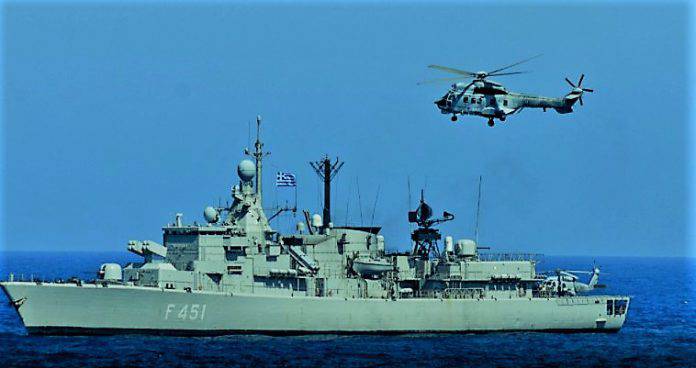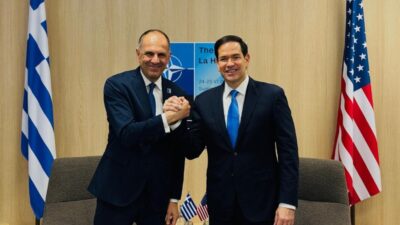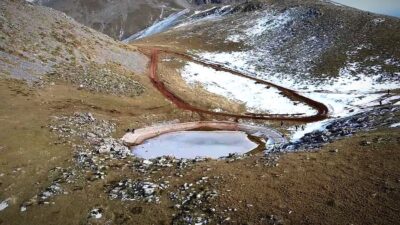Kostas Grivas: If you do not want a Greek-Turkish war, build a second line of deterrence
31/08/2020
It is an indisputable fact that we have entered a period where the possibility of a military confrontation with Turkey is closer than at any other time from 1974 until today. And one of the reasons we got to this point is that the Greek side despised military deterrence and was trapped in a fantasy about the firefighting role of some (supposedly) powerful international actors.
At the same time, and linked to the first fantasy, is the “diplomatic isolation” of Ankara, which is served by a powerful communication mechanism to the anxious Greek public opinion, in order to cover the fact that Turkey has demolished the Greek “red lines” so far, and has the absolute initiative of movements, dismantling Greek national sovereignty piecemeal. And it is a given that when the opposing side has the luxury of deciding the time, place and type of pressure it will exert, then it has a huge advantage.
Also, it is almost inevitable that if the defending side voluntarily removes from the equation of confrontation the choice of military deterrence, then it pushes the attacker to adopt more and more threats of military action, integrated into coercive policies, in order to promote his positions. In other words, military-based deterrence is the other dialectical pole of coercion, with which they form a single geostrategic factor.
That is, reduced deterrence leads to a giantization of coercion. It’s as simple as that.
And this is exactly what is happening today in the Greek-Turkish system. There is, therefore, an urgent need to recreate an immediate deterrent proposal and regain the initiative of moves so that we have a chance to put a brake on Turkey, without dragging ourselves into a war in an area, a time and under conditions chosen by Ankara. .
A hot incident delenda est
And the worst we could do is get caught up in the logic of a “hot incident”. That is, to get the message across that if we are forced to resort to weapons, we will do so in the most “moderate”, “gentle” and “reasonable” way possible, keeping it to a minimum. That would be just criminal.
If Turkey receives this message then it will have gained complete control of the confrontation, choosing when, how much and where to escalate and turn Greece into its puppet. And then, indeed, the conflict will come, because Turkey will have been essentially invited to this choice. So, the word “hot incident” should be removed from the Greek vocabulary, if we want to have some hope to put forward a somewhat convincing deterrent proposal and avoid conflict.
The “hot incident” is serving Turkey. What he fears is war.
As Professor Panagiotis Ifestos, who has introduced prevention studies in Greece, has repeatedly pointed out, a crucial element of prevention is the control of the escalation ladder. And a key element in achieving this goal is the relative ability to accelerate escalation. That is, how fast, in relation to the opponent, you can (and want to) step up from one point of confrontation to another. That is, it is not only a matter of abilities but also of intentions.
Over-acceleration of confrontation
And of course, the most important thing is that there should not be a cutter or a roof on the escalation. Control of the escalation means that you are willing to reach large-scale warfare from the moment the first spark is lit, if you so choose.
In conclusion, crucial for the creation of a “second line” of deterrence by our country, after the unanswered violation of the first “red lines”, is to put forward a convincing proposition that it is ready if it is challenged to implement a “super-acceleration” of the confrontation that will lead from the beginning of a “hot incident” to a large-scale conflict, in a very short period of time, paralyzing the opponent in the dimension of time, placing him in a position of reaction to our own initiatives and making him lose control of the situation.
It is a given that the above will meet the ridicule of the defeatist complex which is the long arm of Ankara in Greece, but at some point, and we have reached it, we must begin to realistically study the theory and practice of deterrence, in particular conditions of the Greek-Turkish confrontation, if we want to maintain a rudimentary contact with reality. Otherwise, the future will become much gloomier than the already gloomy present.





